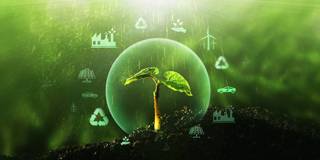Although markets can promote economic efficiency under the right conditions, there is no “invisible hand” to deliver solidarity, agency, material sufficiency, and environmental sustainability. These four ingredients of human flourishing should serve as the foundation of all our policymaking.
LONDON – Not only is climate change moving faster than global efforts to stop it, but our capacities for dealing with such large problems of our own making seem to be diminishing. With economic inequality, job insecurity, and stagnating living standards creating a widespread sense of alienation and disempowerment, societies are fragmenting, and political polarization is deepening.

LONDON – Not only is climate change moving faster than global efforts to stop it, but our capacities for dealing with such large problems of our own making seem to be diminishing. With economic inequality, job insecurity, and stagnating living standards creating a widespread sense of alienation and disempowerment, societies are fragmenting, and political polarization is deepening.